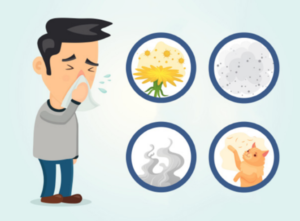Acupuncture has been widely used in Chinese medicine for treating various women’s health problems, including gynaecological disorders. Gynaecological disorders are common among women, and they can range from menstrual pain, infertility, and menopause-related symptoms. Acupuncture is gaining popularity in Western countries due to its effectiveness in treating these types of health issues.
According to Traditional Chinese Medicine, the human body has energy pathways, also known as meridians, that carry Qi (energy). When the Qi flow is blocked or unbalanced, it can lead to health problems. Acupuncture works by inserting thin needles into specific acupuncture points along the meridians to restore the balance and flow of Qi.
In treating gynaecological disorders, acupuncture aims to regulate hormonal imbalance, promote blood flow, reduce inflammation, and alleviate pain. Several studies have shown that acupuncture can improve menstrual pain, regulate menstrual cycles, increase fertility, and reduce symptoms of menopause, among others.
One of the most common gynecological disorders that women experience is dysmenorrhea or menstrual pain. Acupuncture has been effective in reducing menstrual pain by relaxing the uterine muscles, promoting blood flow to the abdomen, and reducing inflammation. A study conducted by the National Centre for Complementary and Alternative Medicine showed that acupuncture can relieve menstruation pain as effectively as painkillers.
Acupuncture can also regulate the menstrual cycle by improving the function of the hypothalamus-pituitary-ovary axis, which affects the hormone levels. Acupuncture can increase estrogen and progesterone levels, which play a crucial role in regulating the menstrual cycle.
Infertility is another gynecological disorder that acupuncture can treat. Acupuncture can improve female fertility by increasing blood flow to the reproductive organs, improving ovarian function, and reducing stress levels. A study conducted by the University of Maryland found that acupuncture can be a useful complementary therapy for in-vitro fertilization (IVF) treatments.
Acupuncture can also help ease menopause-related symptoms such as hot flashes, insomnia, anxiety, and depression. Acupuncture can regulate hormone levels, reduce inflammation, and improve blood flow to the brain. A study conducted by the University of Gothenburg in Sweden found that acupuncture can be a useful and safe treatment for menopause-related symptoms.
In conclusion, acupuncture is an effective, safe, and non-invasive therapy for treating various gynecological disorders. Not only can it relieve menstrual pain, regulate menstrual cycles, increase fertility, and reduce menopause-related symptoms, but it can also improve overall well-being by restoring balance and flow of Qi in the body. If you are experiencing gynecological disorders, consider trying acupuncture as an alternative treatment.



